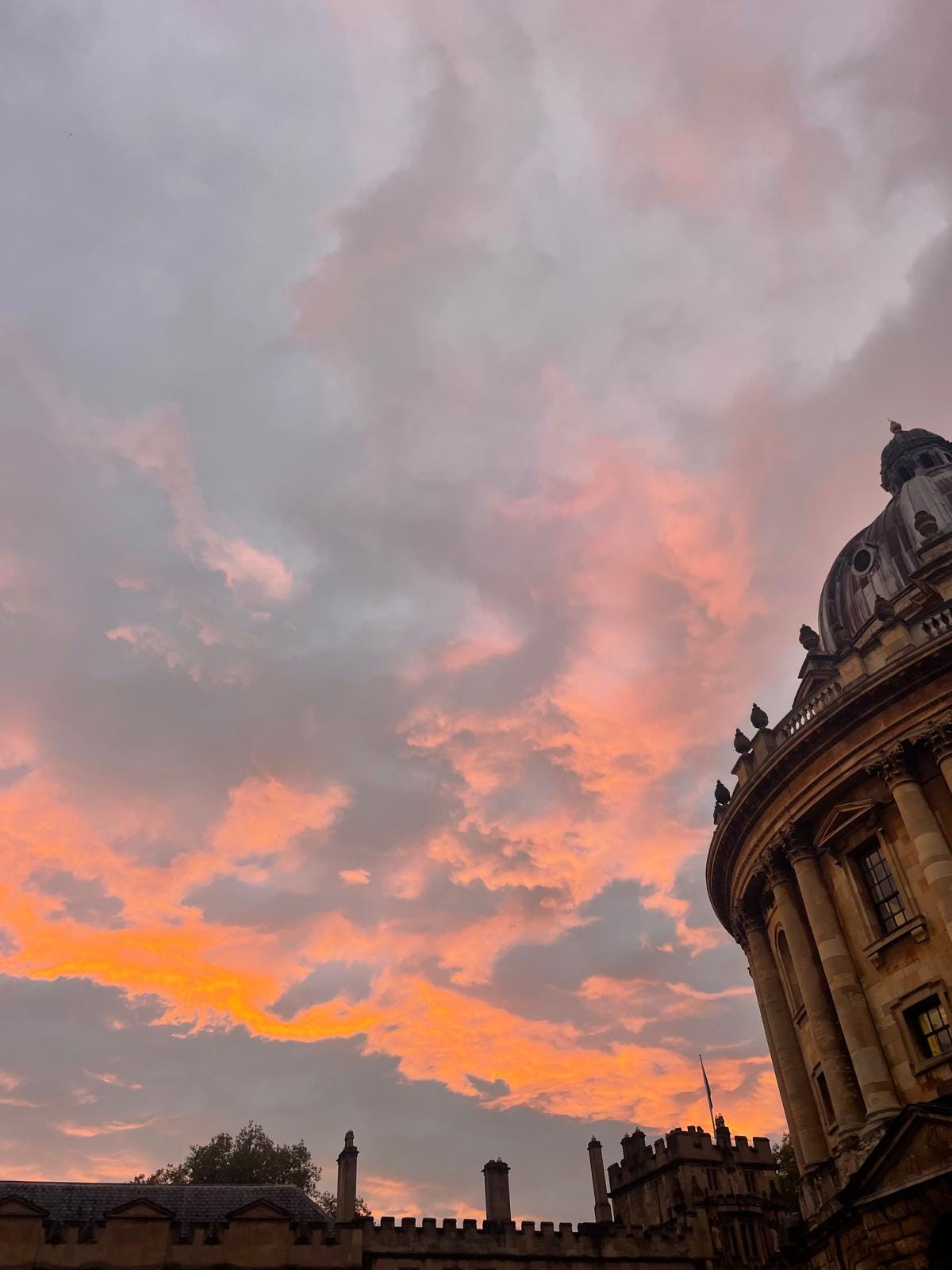Joy, Surprises, and the 'Mysterium Tremendium'
Thoughts on what mystic experiences can teach us about harnessing joy
"Joy is the disposition that we can trust in surprises for the sustaining of our lives"
- Stanley Hauerwas , The Peaceable Kingdom
I met a priest last week who told me his first mystical experience was in Big Bend National Park. He described how the rocks shined with light and he saw new colors. My gut instinct said well then I must go. But that’s the problem with the mystic; these experiences cannot be contrived or controlled. They come inherently by surprise. Perhaps better to chalk up these encounters to one-off things that happen to priests.
Rudolf Otto (1869-1937) wrote a book called The Idea of the Holy urging his enlightened Lutheran friends to consider divine encounters and what they say about the great mysteries of God, or as he called it the Mysterium Tremendium. Otto was interested in making space for the non-rational in the rational Lutheran tradition so as not to miss the heart of religion. Since Otto’s time, a lot has changed in the views of reality outside the material. Anecdotally, it seems to me that the chink in the armor of the materialist culture is already starting to show.
I would venture that we have discounted the Mysterium Tremendium types of divine encounters not because we don’t believe in them, but because we believe other types of joy are easier to harness. We can accept the fact that we cannot predict if rocks will come to life at Big Bend, but we cannot accept the fact that we don’t know if we will have enough joy next week or next year.
We pretend we can acquire just enough resources, curate just the right community, achieve the right career milestones to ensure a good life, and anything else is just an unwelcome surprise. In reality, it’s all a surprise. Our health, our wealth, our very lives. The eyes my parents trust to perceive the world can no longer read a menu in a restaurant, but then they are surprised they are useful for seeing each other differently than before. Some friendships I counted on dearly have dried up unexpectedly, and new friends have surprised me. Grief and heartbreak are most surprising of all. The tiny graces that get us through grief seasons are wild and unpredictable; they don’t ever replace what we have lost but they just keep our hearts beating. We all know this, but we pretend it isn’t true.
There are brief moments in our lives where all this chaos and randomness seems to point to another reality. Charles Taylor describes these moments as glimpses of “fullness.”
“Somewhere, in some activity, or condition, lies a fullness, a richness; that is, in that place (activity of condition), life is fuller, richer, deeper, more worth while, more admirable, more what it should be. This is perhaps a place of power: we often experience this as deeply moving, as inspiring. Perhaps this sense of fullness is something we just catch glimpses of from afar off; we have the powerful intuition of what fullness would be, were we to be in that condition, e.g., of peace or wholeness; or able to act on that level, of integrity or generosity or abandonment or self-forgetfulness. But sometimes there will be moments of experienced fullness, of joy and fulfillment, where we feel ourselves there.”
-Charles Taylor A Secular Age (Harvard University Press 2009), p 5
These fleeting moments, whether they come from a supernatural divine encounter or from a natural yet profound alignment of life as it is meant to be lived are not coercible. However, to live with a joyful disposition is to trust that fullness is reality. Fullness is life “as it should be”. Just because we can’t bottle up these glimpses of heaven doesn’t mean they won’t come back, that there won’t be enough.
It must be adults who teach children to put the fireflies in the jar; a child would trust the fireflies to grace the night sky again and again. And if not then the stars. It seems such a foolish thing to trust in surprises which are by very definition unreliable for the sustenance of our whole lives. Only children do it. Only a child would allow the very presence of God in the supernatural or in the mundane to pass before them without trying to capture it or harness it. This must be exactly why the Kingdom of Heaven is theirs.
PS: Here’s a surprising moment of joy from my week (futile attempted to harness with a broken and old phone camera)





This is beautiful Kate Mac!